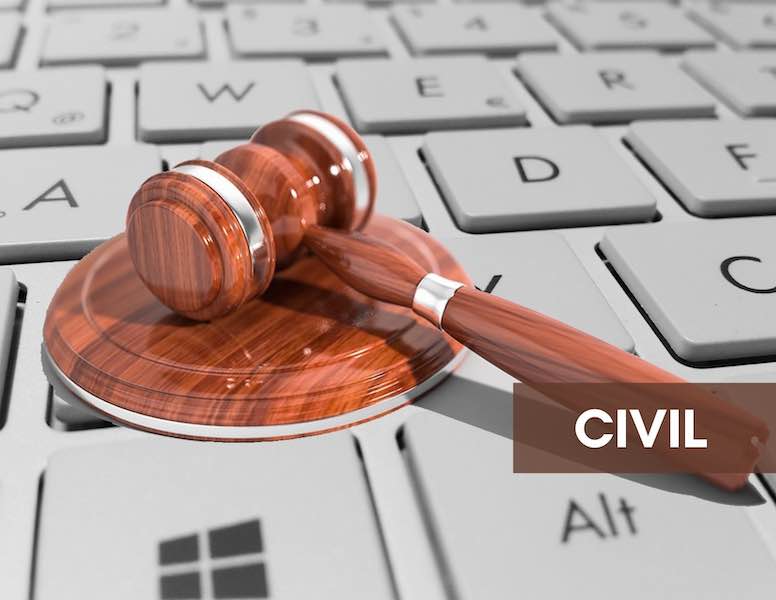Contempt of Court: The Malaysiakini Decision
by Phoebe Loi Yean Wei ~ 3 March 2021

Contributed by:

Phoebe Loi Yean Wei (Associate)
Tel: 603-6201 5678 / Fax: 603-6203 5678
Email: pyw@thomasphilip.com.my
Website: www.thomasphilip.com.my
On 19th February 2021, by way of a 6-1 majority, the Federal Court found Malaysiakini (an online news portal) liable for contempt over comments published by its subscribers. Unsurprisingly, this decision made news around the world, having attracted the attention of international media as well as foreign politicians who became concerned with the impact which the decision may bring to press freedom.
With this judgment, news portals in Malaysia will now have to take more active steps in monitoring and moderating the comments posted by its users or subscribers on their websites. Preventative measures and safeguards will need to be put in place to ensure that offensive or prohibited contents do not see the light of day as failure to do so would expose a news portal to the risk of being cited for contempt.
Background
In the case of Peguam Negara Malaysia v Mkini Dotcom Sdn Bhd & Anor (Civil Application No. 08(L)-4-06/2020(W), the Attorney General of Malaysia initiated contempt proceedings against Malaysiakini and its Editor-in-Chief (Respondents). The subject matter of the proceedings centered around five comments (Comments) published by subscribers of the news portal below an article entitled “CJ orders all courts to be fully operational from July 1” (Article).
In essence, the comments in question accused the judiciary of corruption and incompetence. As such, the category of contempt which the Comments fall under is the one known as “scandalizing the court”. In summary, this means that the Comments are said to pose a real risk of undermining public confidence in the administration of justice.
The Respondents admitted that the Comments were offensive, contemptuous and inappropriate. Hence, the sole issue before the Federal Court was whether the Respondents are liable for the Comments which were posted by third parties. In the end, Malaysiakini was found guilty of contempt and fined RM500,000.00, but not its Editor-in-Chief.
The Judgment of the Majority
The Respondents argued that they should not be held liable for contempt of court as they were neither the publisher nor maker of the Comments. They maintained that they had no knowledge of the Comments until the police had alerted them to the same.
However, the majority of the judges disagreed and stated that Section 114A of the Evidence Act 1950 presumes Malaysiakini to be the publisher of the Comments. While this presumption is rebuttable, the Federal Court held that Malaysiakini failed to rebut this legal presumption. It was also held that Malaysiakini’s knowledge of the Comments could be inferred from the facts of the case.
In reaching its decision, the Court found that Malaysiakini, being the owner of the website, had complete control over the contents which are published and the way the platform operates. In other words, Malaysiakini provided the platform which facilitated or allowed the subscribers to post the Comments on its website. As such, the news portal must accept the risks that come along with it. While Malaysiakini did have software in place to monitor third party comments, the Court found the software to be inadequate and inefficient as it did not prevent the offensive substance from being published (more on this below). The Court also highlighted that Malaysiakini has a well-structured editorial team comprising of 10 editors and no explanation was provided by any of them as to how the Comments had escaped their notice. Furthermore, none of the editors had denied knowledge of the Comments.
The Federal Court then decided that Malaysiakini had failed in establishing that it did not have any knowledge of the contemptuous Comments. It was further held that Malaysiakini ought to have known or foreseen the comments which the Article would attract at the material time, given that the timing of its publication coincided with the acquittal of a Malaysian politician (after the prosecution decided to withdraw all criminal charges) – an event which generated wide public discontent and criticisms.
It is important to note that the Court had also addressed the issue of liability in relation to third-party publications on social media platforms. In this regard, the Federal Court compared Malaysiakini with Twitter and held that unlike the news portal, Twitter has no control over what is posted by its users. In support of this, reference was made to the case of Re: Prashant Bushan & Anor, Suo Motu Contempt Petition (Crl) No. 1 of 2020, where a lawyer was found guilty of contempt for tweeting contemptuous remarks, but Twitter itself was not.
As to Malaysiakini’s Editor-in-Chief, the Federal Court held that the Attorney General had failed to establish the presumption under Section 114A against him as no facts or evidence had been adduced to show that he had facilitated the publication of the Comments.
When Section 114A of the Evidence Act 1950 was introduced in 2012, the provision was met with much protests from stakeholders (i.e. platform providers, intermediaries) as they became vulnerable to being sued for the actions of their users. Their concern was understandable, seeing as the burden is now on them to prove that they are not the perpetrators. Notwithstanding these protests, Section 114A was still included as part of the Evidence Act.
Based on the Hansard to the Evidence (Amendment) (No. 2) Bill 2012, it was explained that the rationale behind the introduction of Section 114A was to deal with the issue of anonymity on the internet and ensure that users do not exploit the anonymity that the internet can provide to escape the consequences of their actions. With Section 114A, potential plaintiffs will be able to obtain better cooperation from other parties such as service providers or intermediaries to identify the actual perpetrators.
(To read more about the effect of Section 114A on internet publications, please refer to the article here)
Judgment of the Minority
Out of the seven judges which formed the panel that presided over this case, there was one who disagreed with the judgment of the majority. We now turn to discuss the dissenting judgment delivered by Justice Nallini Pathmanathan.
In dealing with the issue of knowledge, Justice Nallini observed that the software utilized by Malaysiakini screens the comments posted by its subscribers against a list of banned and suspected words. However, the system only allowed the site administrator to approve or reject comments after the same has been published. It also cannot detect sentences and words which are more complex as the artificial intelligence employed was not advanced enough. As such, her Ladyship found that the editors or administrators of Malaysiakini’s website would not be aware of the contents of the comments posted by its subscribers unless and until it is flagged up by the software. The Respondents only became aware of the Comments when the police brought it to their attention. Therefore, they cannot be deemed as “publishers” of the Comments as knowledge is a necessary element of publication.
In support of the observations made above, Justice Nallini referred to the Malaysian Communications and Multimedia Code (CMC), which provides that internet intermediaries such as Malaysiakini is only liable the moment it becomes aware of the existence and content of the third-party comments. Given that comments can be posted at any time, it would be untenable to expect supervision to be conducted over the comments throughout day and night.
Her Ladyship also rejected the use of the “ought to have known” test which was applied by the majority judges. Justice Nallini found that this should not be the applicable test in determining the element of publication as an online news portal will be affixed with liability as soon as the offensive comments appear on the website. Removing the impugned comments would not change this position as the news portal is already caught by the test which provides that it ought to have known or foresee the comment before it is even posted. In other words, an online intermediary will be liable for not taking steps to prevent unlawful comments from being made. It was observed by Justice Nallini that this would be inconsistent with the legislation enacted by Parliament (Communications and Multimedia Act 1998) due to the following reasons:-
1. Section 3(3) of the Communications and Multimedia Act provides that nothing in the Act should be construed as permitting the censorship of the internet;
2. The CMC provides that the responsibility of online content rests primarily with the content creator itself. A host such as Malaysiakini does not have to block its users from accessing any material unless directed by the Complaints Bureau;
3.The CMC does not require a host to monitor the activities of its users or subscribers;
4. Section 10.2 of the CMC provides that when a host is notified of any prohibited content (and it is able to identify the user), the host is given 2 working days to inform the user that the impugned content must be removed within 24 hours failing which the host has the right to remove such content; and
5. Section 98(2) of the Communications and Multimedia Act provides that compliance with the CMC is a defence against any prosecution, action or proceeding of any nature, whether in a court or otherwise if it relates to a matter dealt with in the CMC.
Based on the above, Justice Nallini held that Malaysiakini is not liable for contempt as it is not the publisher of the Comments. It is also not the author of the Comments and therefore not the primary perpetrator. As Malaysiakini was not the publisher, it could not also possibly have the “intention to publish” – a requisite element for the offence of scandalizing the court. The news portal had no knowledge of the Comments until the police alerted it to the same and crucially, Malaysiakini complied with the CMC. The Comments were removed 12 minutes after Malaysiakini became aware of them.
The Author’s Comments
In this day and age, media freedom is of paramount importance as it functions as a check and balance in democracy. It promotes transparency and accountability from elected representatives to government officials and public authorities. For obvious reasons, this is crucial especially for Malaysia given the events which have transpired in recent years.
However, it is also important to understand that contempt of court is a serious offence. Public confidence in the judiciary is vital for the effective performance of judicial functions. As stated by the former Chief Justice of Australia: “The general acceptance of judicial decisions, by citizens and by governments, which is essential for peace, welfare and good government of the community, rests, not upon coercion, but upon public confidence.” As such, we must always bear in mind that while everyone has the right to freedom of speech in expressing their views and opinions, such expression must be within the bounds permissible by law and must not, as Justice Nallini puts it, “erode the confidence of the public in this august institution”.
*Please note that the above analysis is based on the press summaries released by the Federal Court which is accessible here, and is subject to change upon the release of the full grounds of judgment.